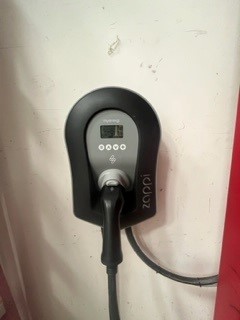Electric vehicle (EV) chargers are devices used to recharge the batteries of electric vehicles.
As the popularity of electric cars continues to grow, the need for efficient and accessible charging infrastructure becomes increasingly important. EV chargers come in different types and power levels to accommodate various charging needs.
Level 1 chargers are the most basic and commonly available chargers. They typically come with the electric vehicle and use a standard household outlet (120 volts) to deliver a charging rate of around 2-5 miles of range per hour. Level 1 chargers are suitable for overnight charging at home but are relatively slow compared to other charger types.
Level 2 Chargers

Level 2 chargers offer faster charging rates compared to Level 1 chargers. They require a 240-volt power source, similar to what is used for large appliances like electric dryers or ovens. Level 2 chargers can deliver around 10-60 miles of range per hour, depending on the vehicle and charger capacity. They are commonly installed at homes, workplaces, and public charging stations.
DC Fast Chargers (Level 3)

DC Fast Chargers, also known as Level 3 chargers, provide the fastest charging speeds available. They use direct current (DC) power and can deliver high power levels to charge an EV rapidly. DC Fast Chargers can provide 60-80% charge in as little as 30 minutes, making them ideal for long-distance travel and public charging stations. However, they require specialized installation and are not typically used for residential charging.
As the electric vehicle market continues to expand, the availability and accessibility of EV chargers are crucial for promoting the widespread adoption of electric transportation. Governments, businesses, and individuals are investing in charging infrastructure to support the growing EV market and encourage sustainable transportation options.

